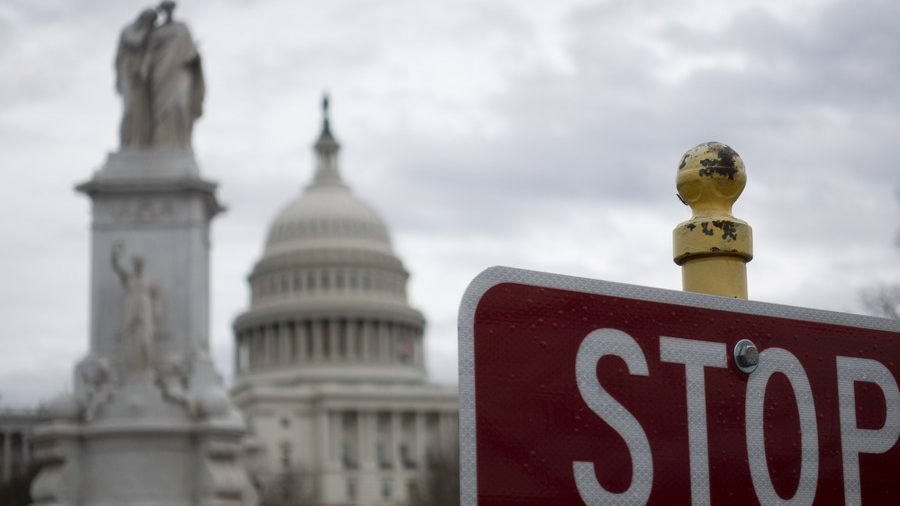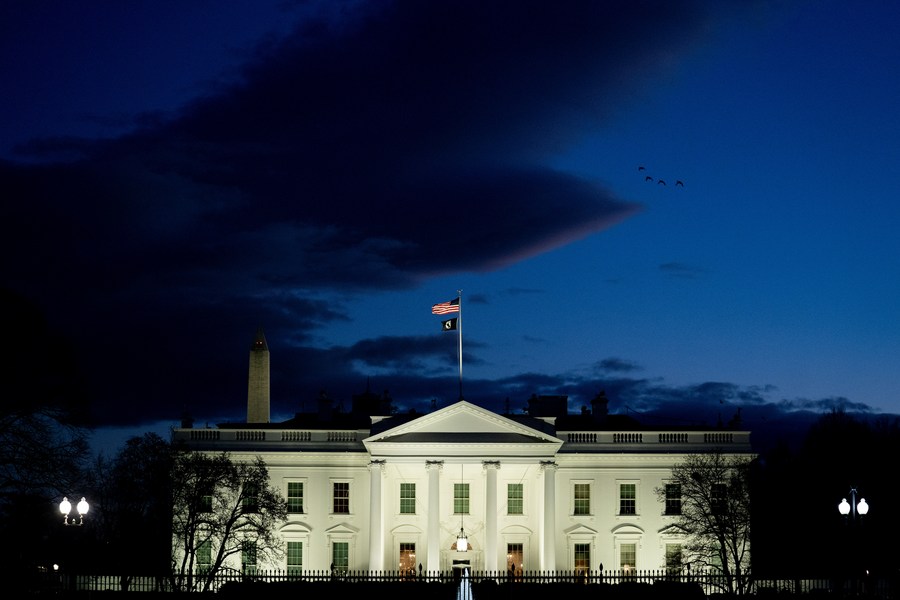
The Capitol in Washington, D.C., U.S., February 13, 2020. /Xinhua
The Capitol in Washington, D.C., U.S., February 13, 2020. /Xinhua
Editor's note: John Gong is a professor at the University of International Business and Economics (UIIBE) and VP-Research and Strategy at the UIBE-Israel. The article reflects the author's views and not necessarily those of CGTN
On February 20, China's Ministry of Foreign Affairs issued a report titled U.S. Hegemony and Its Perils, essentially indicting the United States for its hegemonic behaviors in various aspects as related to its foreign policy, one of which touches upon the technological hegemony issue.
Among a couple of examples it mentioned is the Commerce Department that has put "more than 1,000 Chinese enterprises on sanction lists." "In addition, the United States has also imposed controls on biotechnology, artificial intelligence and other high-end technologies, reinforced export restrictions, tightened investment screening, suppressed Chinese social media apps such as TikTok and WeChat, and lobbied the Netherlands and Japan to restrict exports of chips and related equipment or technology to China."
This short article offers a brief analysis under the World Trade Organization (WTO) context, as Washington is fond of talking about the rules-based international order. The United States took a principal role in setting up the rules-based international order that governs global trade after the World War II. But nowadays, the U.S. betrays that order and is walking on a path that pursues unilateral actions.
The General Agreement on Tariffs and Trade (GATT) provides an exemption to WTO signatory member states' free trade obligation on the ground of national security. This sometimes referred to as the national security exemption provision is the GATT's Article XXI. But the exact terminology used is actually "essential security interests," and a careful reading of the Article XXI shows that it clearly refers to strictly defense and military related matters. Article XXI b(i) refers to protection of nuclear weapon matters and the other two sub clauses refer to things related to defense and war.
Actually, Washington has taken a position of a narrow interpretation of this clause. For example, in April 2012, it jointly issued a statement on foreign investment review together with the European Union advocating that "governments should ensure that their reviews, if any, of the national security implications of foreign investments focus exclusively on genuine national security risks."

The White House in Washington, D.C., U.S., January 20, 2023. /Xinhua
The White House in Washington, D.C., U.S., January 20, 2023. /Xinhua
But Washington has reversed course since the Trump administration, and started to adopt policies that broaden the national security interpretation, resulting in a wanton abuse of the Article XXI of the GATT. Washington has imposed sanctions on plenty of companies from so many countries for various reasons to the extent that it's become a total adulteration of national security as a means to impede free trade.
With respect to China, the primary motivation is of course the "grand competition" that's centered on seeking technology supremacy. But it doesn't stop there. Other motivations include geopolitics, national economic security, national economic sovereignty, and national economic competitiveness. With respect to other countries, terrorism, corruption, cross-border crimes, pandemic, climate agenda, cyber security, data security have all been lumped together into the national security bin.
This is a slippery slope. We are no longer living in a world with free trade, or living in a world where the United States advocates free trade. We are sliding from free trade to fair trade, and then to secure trade, and then to managed trade, and then to limited trade, and then to ideologically identical or similar trade, and eventually to no trade. It is a wholesale anti-globalization effort and a thinly-veiled plot to collapse the WTO.
(If you want to contribute and have specific expertise, please contact us at opinions@cgtn.com. Follow @thouse_opinions on Twitter to discover the latest commentaries in the CGTN Opinion Section.)